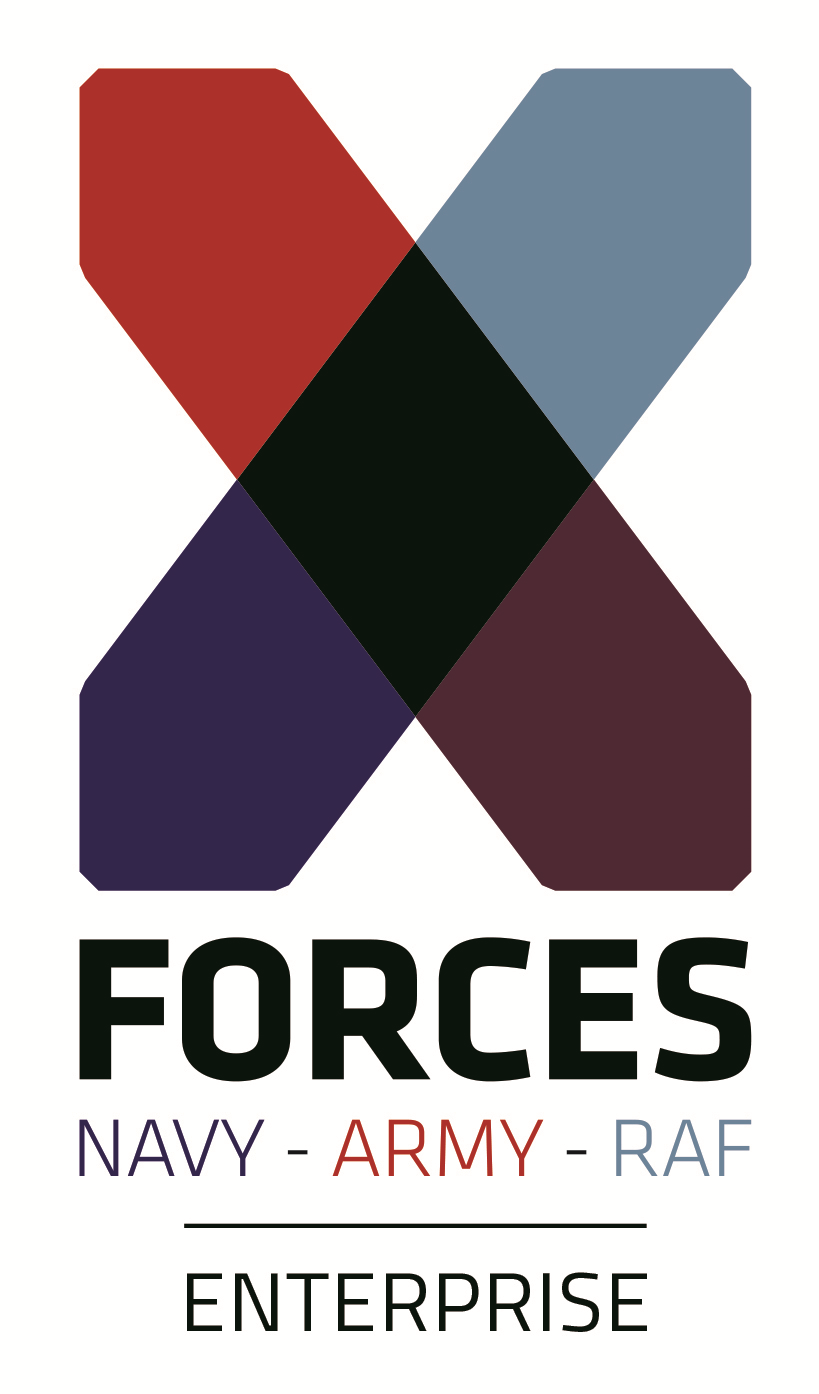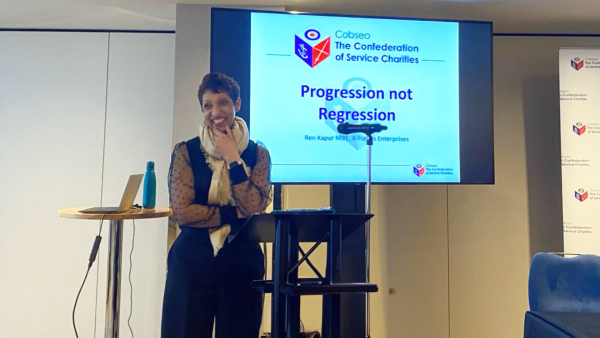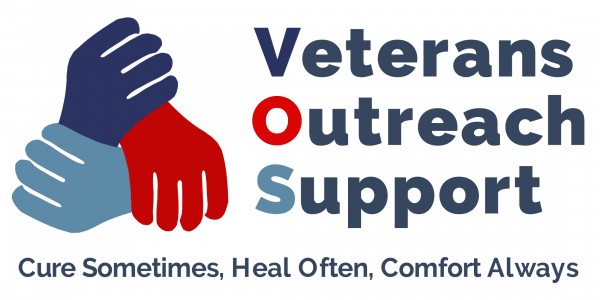Ren Kapur MBE, Founder CEO, X-Forces Enterprises, has shared a blog.
If we truly want to achieve happiness, if we want to make the equality, diversity, and inclusion agenda a reality, we must walk the path together.
Last week I had the great privilege of joining Sir Nick Pope and other COBSEO members to speak at their EDI Symposium, which brought on some fantastic reflections on policy formulation, service delivery, and lived experience across the community.
And, folks, I did it again – after having the time to carefully think about what my message as a keynote speaker would be, I ditched the script at the last minute! So, I thought I’d share what I would’ve said on the day, with the hope that together we can reflect on my message of Progression, Not Regression, and what it means.
So here goes…
Ahead of the symposium I had a lot of time to prepare, and some feelings of doubt. Seeing the other keynote speakers who would be joining us on the day made me think about my role in sharing my own lived experience – what do my experiences mean to me, and why is it important that I share them? I found myself sitting down before the event with Craig and Caroline from the wonderful Fighting with Pride and expressed to them my feelings of ‘imposter syndrome’ given the battles they have been fighting to address profound wrongs. They were incredibly supportive and kind in assuring me that all of these issues matter in the context of EDI. Humility at its best!
Diversity and Inclusion has been a big part of the work I have championed over the last few decades, way before my involvement with the Armed Forces community. It is fair to say from my own experience there has been progression, some regression, biases, and positive and negative debates around what has happened locally, nationally, and on a global scale.
Our journey towards true equality is not just a matter of ticking boxes or meeting quotas; it’s about fostering an environment where everyone has the opportunity to thrive, regardless of gender, race, sexuality, or other characteristics. That doesn’t mean they are more or less important – in fact, it is the tapestry of all EDI that truly will move the dial. Studies consistently show that companies with diverse leadership teams outperform those without, both financially and in terms of employee satisfaction. That’s great and I am all for incentives and bottom-line rationale, but it is also just ‘the right thing to do’.
We now live in a world where being different should be celebrated, but how do we ensure that we look at the past as ‘lessons learned’ that are helping us to level up and not be drummed down? Coming to terms with the past and trying not to rewrite history – rather, we should be penning a new rule book for the future. We can apply this to anything, but I’m going to zoom in on women’s equality.
Throughout my life and work, most of my volunteering has had a firm emphasis on advancing women’s equality, and particularly cultural inequalities. My belief is that I progressed to a certain point before hitting several glass ceilings. The energy, time, resources, and morale to keeping breaking through multiple layers is exhausting, and wouldn’t it be great if this could be avoided.
At the symposium I shared three personal experiences which stand out to me when I think about the barriers I have faced. They are quite different, one could say innocent, and in a particular case somewhat clumsy, and they all happened in different decades of my life. In all three instances, the people involved weren’t out to harm me, but the biases and constraints they were operating with, coupled with a lack of knowledge and awareness – which they probably have since acquired – resulted in me being marginalised, and in one case close to danger. I did not share these experiences lightly – in truth, doing so made me extremely emotional. It is natural to be apprehensive when sharing vulnerabilities and challenging episodes in one’s life, but it is equally true that every action has a reaction, especially in the EDI context and therefore knowledge on diversity is more than a nice to have.
This has all driven me to ensure that the organisations I lead are supporting people to fulfil potential. Over the years, we’ve made significant strides. Women now make up a substantial portion of the workforce, and many have ascended to senior managerial positions. However, when we look beyond this surface-level progress, we encounter a troubling reality: the ascent to senior roles is slower, often hindered by systemic barriers and biases.
Last week, I was at our Big Business Supporting Small Business Steering Group. 30% of the room was female, and I asked each of them individually: Do you think that you have had to work at least 20% harder than your male counterparts to get to the same place or get the job done? Categorically each one of them said yes, and more than 20%. If we took 20% off our workload and were able to put it elsewhere, then what would we be able to do with this time? That could be a whole extra day a week, so I know we’d be happier!
So, why does all of this matter? It matters because when we fail to harness the full potential of women’s talent and leadership, we all seriously lose out. It matters because diversity in leadership brings fresh perspectives, fosters innovation, and drives better business outcomes – it allows us to understand as we seek to be understood. And it matters because achieving true equality is not just a matter of fairness; it’s essential for building a more just and prosperous society for all. For OUR brothers and sisters to come together, hand in hand, and change the world, one brick at a time.
With this in mind, I want to shift our focus to the theme of progression, not regression.
While it’s important to challenge the rate of change we are seeing for women in top positions, celebrating the progress we’ve made is key in channelling our efforts toward accelerating it. This means implementing policies and practices on an individual and organisational scale that promotes gender equality. It means creating inclusive cultures where everyone feels valued, respected, and empowered to succeed at all levels. Whether through mentorship, sponsorship, or simply amplifying women’s voices in the workplace, each of us has the power to make a difference and pave the way for a more equitable future.
This has made me consider what we at X-Forces Enterprise (XFE) can do to make a difference, particularly within the Armed Forces community and working with COBSEO, Royal British Legion, Forces in Mind Trust, and our other fantastic partners. Personally, I would like us at XFE to adapt our timeless and trusted methodology based on behaviours, attitudes, skills and knowledge (BASK), into a framework for EDI best practice within our own organisation in order for us to get to the next level.
The energy, willingness, and collaboration in the room at the COBSEO symposium was palpable. One delegate suggested we come together in small groups to work on creating something truly special from what can at times be a divisive debate. We will play a firm role in supporting this. We’re looking forward to coming back after the Easter break and regrouping with Charlotte Fiander and colleagues.
Thank you to my fellow panellists for all of the insights, experiences, and data points shared at what was a fantastic event.


















